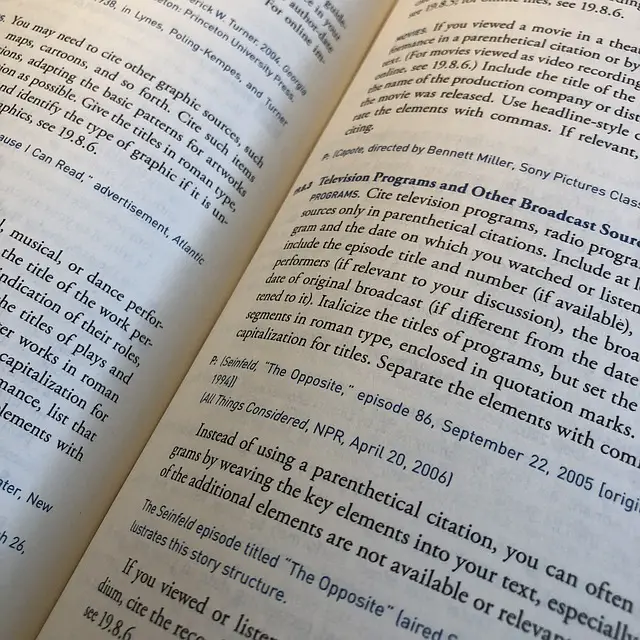Academic writing is a more formal and focused type of writing which is widely used by people of different professions. The main aim of this writing is to discuss certain subjects objectively. Comparatively, the creative style of writing includes personal voice and opinion. While, the academic one is used to avoid subjectivity which can sometimes distract readers and writers from the crux of the matter.
Writing academic essays is not a difficult task if the main recommendations are known. Indeed, academic writing is even easier than creative because you do not need to use imagination and make something extraordinary. In this article, the most significant rules have been gathered which will help you write better. You should focus on the specific order of actions and follow it.

Purpose of Writing
The primary thing to be determined is the aim of your essay. In creative style, you can write anything you want as the main aim is to keep the reader interested. In the formal style, you need to inform, use arguments, persuade, analyze, and do other analytical thinking. It is based on logic, that is why you need to be consistent in your paper.
Before you begin, the following questions need to be answered: “What should I learn from this essay as a reader?” Unless you have a precise answer, you should think out the purpose of your work once more. A thought-out aim and message of an article shall be noticeable from the introductory sentences. An author should clearly know his or her target audience, admit its needs and meet the expectation of readers. Although it sounds quite easy, in practice it is not that simple. Therefore, it is recommended to pay attention to the structure very specifically.
Essay Structure
Essay structuring is a significant step in preparation because it determines the whole content. There are lots of online sources which can help you understand each structural part in detail. Each element has been further discussed in detail.
It is logical that each paper should consist of:
- Introduction
- Main body
- Conclusion
Regular order of an essay is followed. The difference lies in the way you plan each part. The introduction shall have a hook sentence, and a clear thesis statement. The last element is the most crucial. Your thesis determines the whole message of your writing. The following paragraphs should have a certain relation to your tentative objective. Lots of students make mistakes trying to keep readers in suspense until the very end. Such a technique is good for belles lettres. However, in the formal papers, your target audience has to get an overall idea of your paper from the very beginning. Knowing this significant information, planning the next sections become much easier.
Consider the Vocabulary
When writing academic papers, you should become a real scientist. A writer should understand that the vocabulary should be without any hints to his or her personal opinion. Forget about the first person of narration, words with emotional connotation, very descriptive idioms, contractions, and other informal elements of language. Try to find neutral equivalents for words which may have certain connotation within your context. You should make your text unambiguous. Otherwise, you may lose the reader’s attention and their belief in your arguments. If you have troubles choosing correct vocabulary, try various online tests. Vocabulary exercises will help you learn new words and subtle meanings of the known phrases.
Choose Your Type of Academic Writing
There are several types of English writing styles which you can use in preparing academic essays. Descriptive and narrative styles are more related to creative style, but expository and persuasive types refer to academic. Each of them has specific features which make them different. For example, in the expository paper, a writer gives some instructions which are sometimes technical. In the persuasive essay, you need to use arguments and logical reasoning to prove your thesis. The selection of the topic determines which type of essay you need to use. Read the task description carefully to understand the purpose of writing.
Author’s Objectivity
Academic writing is deprived of a personal voice which means that nobody is interested in your personal opinion. The task is to analyze and investigate facts, and there can be some situations when you can mention your viewpoint, but it should not be subjective. The reader is interested in logical explanations and argumentations. That is why you need to write as if trying to look at the issue of discussion from the bird’s-eye view. You examine several opinions or examples from the same viewpoint and then summarise everything.
Citation and Formatting
There are several types of citation which each student has to use before submitting. If there is no exact style required, take MLA format which is the most common one. This step is significant because there should be certain norms and regulations for everyone. Also, formal writing cannot exist without citations which are used to prove arguments. It is significant to mention the source and its author. For this, you need to know specific rules about how to add the citation style and formatting. This may take some time, but the visual look of your text is not less important than the content. If the reader sees different fonts, page breaks, or other unformatted elements, the desire to analyze this paper decreases.
Practice and Get Feedback
Here comes the most significant advice. You need to write more and more academic essays to understand how this style works. However, if you prepare papers without proper analysis, there will not be any remarkable progress. Ask your guide to give you feedback. It is the most efficient way to understand common mistakes and improve writing skills. As to academic style, the proverb ‘ Practice makes perfect’ is very useful. All you have to do is to write essays on different themes trying to stick to the main rules. Thus, this style is not that difficult if a writer knows the most important hints and recommendations.

